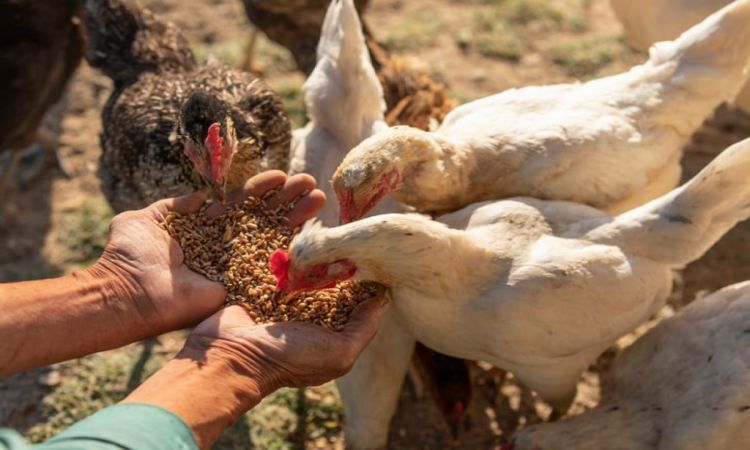 Free-range hens are thought to be effective at getting rid of troublesome insects, snails, slugs, and ticks from a yard. Chickens are not picky eaters. Therefore they don’t mind if a freshly discovered delicacy is a nuisance or a beneficial earthworm.
Free-range hens are thought to be effective at getting rid of troublesome insects, snails, slugs, and ticks from a yard. Chickens are not picky eaters. Therefore they don’t mind if a freshly discovered delicacy is a nuisance or a beneficial earthworm.
Ants, worms, seeds, grasses, spiders, ticks, and a variety of other tidbits are rapidly turned into dinner. If you want to give them some packed feed, you can try the chicken feed for sale.
If you put a few chickens in a garden, they’ll eat Japanese beetle, squash bugs, and a variety of other insects. Unfortunately, they’ll eat lettuce, chard, spinach, and other greens as well. Chickens enjoy pecking tomatoes that are just about to ripen and young squash, as well as other garden crops.
If you are worried about how much you have to spend for the chicken feeds, then you can have a gross amount of almost $150 for a month.
Although there are many ways by which you can save money and give extra proteins to your chickens. The key is to know when and how to let hens into the garden so that they can consume the pests while ignoring the crop.
The simplest method is to allow them to forage once all of the crops have been harvested for the year. Many bugs actually grow as larvae or eggs, and poultry would systematically scrape through the garden’s remnants, destroying pests and leaving fertilizer behind. This will almost probably minimize bug numbers in the garden next year.
Chickens also can be permitted to forage into crops that they don’t normally eat or when the crops are mature enough that their fruit or leaves won’t be damaged. Chickens, for example, generally avoid tomato plants but like pecking at their nearly ripe scarlet fruit. As a result, it’s probably safe to allow the birds to feed on the tomato crop before the fruit ripens.
Because chickens can’t tell the difference between garden pests and useful invertebrates, they’ll eat both pests and good worms and pollinating insects, but they’re unlikely to have a big impact on the populations of these gardeners’ friends.
Chickens will eat almost any insect they can capture; however, the majority of bugs that bite people, hens, or other animals are sneaky, quick, or very small, providing chickens something of a chance to diminish their numbers than slow-moving organisms.
They’ll eat the larva of troublesome flies if they would find them, but adult biting flies, aside from the occasional individual they grab from the air, are difficult to catch.
Mosquitoes are most active when the lighting is low, and hens are virtually comatose on their roosting; thus, controlling mosquito populations is difficult. Ticks are a favorite food of hens. They may have a negative impact on the population of bigger tick species.
Never believe that having free-range hens will keep your yard free of disease-carrying pests. When you’re outside, in the yard, use insect repellent and check for ticks before showering.
Allowing a flock of hens to graze in the backyard lowers their food bill since the birds consume a variety of protein-rich insects. They will eat agricultural pests if they are properly handled, but they will not be as successful at devouring the microscopic critters that attack humans and animals. If the costs for chicken feed are out of your budget, you can also try some chicken feed for sale, available in almost every store.

